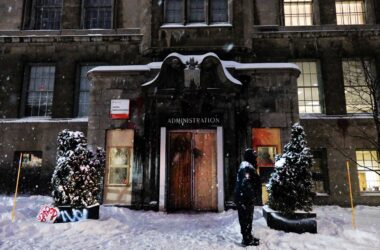On Sept. 16, Grévin Montréal, the famous Montreal wax museum, permanently closed its doors. It had been temporarily closed since March 2020 as public health protocols forbade non-essential activities like cultural exhibitions from fully opening. Numerous Black-owned businesses faced similar circumstances after being deemed “non-essential,” exposing how such arbitrary labelling can be damaging to cultural institutions.
Grévin, a popular tourist attraction, was meant for the general public. It was the closest visitors could get to “seeing” their favourite celebrities or historical personalities; to grazing Marilyn Monroe’s perfect posh hair, or feeling the weight of history while standing next to Nelson Mandela. It was an imaginative world of endless opportunities. Culture is a way of life, shared by a group of people. It is forged by their behaviours, beliefs, and values, passed down from past generations through communication and imitation. Cultural institutions are considered non-essential services, even though they are essential vectors for social growth. Works of art render history into the present, stopping time and breathing colour into everyday life. Such timelessness is hard to put into words.
When the Grévin museum reopened in February 2021, it saw a decrease in attendance due to travel restrictions: prior to the pandemic, 30 per cent of visitors were international and a sizeable amount were Quebecers from outside of Montreal.
Some believe that art and culture is best appreciated by the wealthy elite or those capable of interpreting it through an intellectual lens. But this is not true. Art and culture are what is left to us when everything else is lost; it is an escape.
Similar to cultural institutions, Black-owned businesses have faced exceedingly hard times over the pandemic, as many of their businesses have been deemed non-essential. At the same time, these enterprises have faced increased difficulty receiving loans and have limited access to credit.
Institutionalized racism is still deeply rooted in society. Those who are supposed to help save struggling businesses by giving out loans are the same people who discriminate, leaving Black entrepreneurs with double the challenge. Meanwhile, the federal government’s programs to support Black business owners, such as “The Black Entrepreneurship Program,” are vague and inaccessible. Many have criticized their unclear terms of repayment, their lack of transparency, their failure to communicate, and most importantly, their intrusive questions regarding business-owners’ sexuality. Answering invasive questions about one’s intersectional identities should not determine whether or not a Black-owned business is able to remain open.
The closure of Grévin Montréal is only one example of a larger problem. In general, the question of who has the right to determine what should be deemed essential or not must be called into question. While unprecedented fear and uncertainty continues to impact students, businesses, and artistic spaces, it is culture that offers us peace, inspiration, and hope. Whether by sharing and exchanging our own, or supporting Black-owned initiatives like “Black-Owned Canada,” or “Black North Initiative,” it is our responsibility as McGill students to uphold cultural institutions and believe in their importance.









